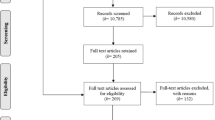Abstract
This chapter describes an approach to teaching freshman writing at a private university in Lebanon. The approach is an adaptation of Leki’s sequenced writing project where students build expertise and develop as writers by composing different genre-based essays on a single topic of their choice. Many students are not engaged in the readings or are unmotivated to write, and many are not proficient enough to write in their second (or third) language. Such students have often resorted to plagiarism and ghostwriters as a quick fix to the challenges they face in writing courses. To combat this problem, a number of policies were introduced: topics were assigned to students; they had to write in class within a limited time frame; and they were constantly quizzed and tested. A mixed-methods research design that investigated the effectiveness of these policies found that they had negative effects on the development of students. The chapter concludes by offering implications for writing programme administrators.
Access this chapter
Tax calculation will be finalised at checkout
Purchases are for personal use only
Similar content being viewed by others
References
Abdulla, R., & Skaf, A. (2015). Lubnan fi al dirasaa al duwaliyya TIMSS 2011: Eighth grade. Beirut: Center for Educational Research and Development.
Bacha, N. N., & Bahous, R. (2013). Cultures of learning in academia: A Lebanese case study. In M. Cortazzi & L. Jin (Eds.), Researching cultures of learning (pp. 116–135). London: Palgrave Macmillan.
Bani Younes, Z., & Albalawi, F. S. (2015). Exploring the most common types of writing problems among English language and translation major sophomore female students at Tabuk University. Asian Journal of Basic and Applied Sciences, 3(2), 7–26.
Centre de Recherche et de Développement Pédagogiques. (2015). Statistics bulletin for the academic year 2014–2015. Retrieved from http://www.crdp.org/files/201703140524141.pdf.
Centre de Recherche et de Développement Pédagogiques. (2017). Statistics bulletin for the academic year 2016–2017. Retrieved from https://www.crdp.org/files/201712140900311.pdf.
Dante, E. (2010). The shadow scholar. Chronicle of Higher Education. Retrieved from https://www.chronicle.com/article/The-Shadow-Scholar/125329.
El-Ghali, H. A. (2017). Al-Taalim Al aali lilsuryeen haq wa laysa tarafan [Higher education for Syrians is a right not a luxury]. Al Akhbar, 22 May. Retrieved from http://www.al-akhbar.com/node/277545.
El-Ghali, H. A., Berjaoui, R., & McKnight, J. (2017). Higher education and Syrian refugee students: The case of Lebanon. Beirut: UNESCO Regional Bureau for Education in the Arab States.
Esseili, F. (2014). English language teaching in Lebanon: Trends and challenges. In K. M. Bailey & R. M. Damerow (Eds.), The teaching and learning of English in the Arabic speaking world (pp. 101–114). New York: Routledge.
Esseili, F. (2016). The status of ESL/EFL writing in Lebanon. In T. Silva & J. Paiz (Eds.), Writing in the global context: Represented, underrepresented, and unrepresented voices (pp. 142–175). Beijing: The Foreign Language Teaching and Research Press.
Ezza, E. (2010). Arab EFL learners’ writing dilemma at tertiary level. English Language Teaching, 3(4), 33–39.
Howard, R. M., & Robillard, A. E. (Eds.). (2008). Pluralizing plagiarism: Identities, contexts, and pedagogies. Portsmouth, NH: Heinemann.
Leki, I. (1992). Building expertise through sequenced writing assignments. TESOL Journal, 1(2), 19–23.
Miller, R., & Pessoa, S. (2017). Integrating writing assignments at an American branch campus in Qatar: Challenges, adaptations, and recommendations. In L. Arnold, A. Nebel, & L. Ronesi (Eds.), Emerging writing research from the Middle East-North Africa region (pp. 175–200). Fort Collins: The WAC Clearinghouse, Colorado State University Open Press.
Mourtaga, K. (2012). Poor writing in English: A case of the Palestinian EFL learners in the Gaza Strip. Gaza: Islamic University of Gaza. http://site.iugaza.edu.ps/kmortaga/files/2012/04/poor-writing-of-Palestinian-EFL-learners.doc.
Nofal, K. (2011). The reasons behind the English major students’ weaknesses in Philadelphia University. Damascus University Journal, 27(1), 101–128.
Pennington, M. (2010). Plagiarism in the academy: Towards a proactive pedagogy. Writing and Pedagogy, 2(2), 147–162.
Rudd, M., & Telafici, M. (2017). An Arabian Gulf: First-year composition textbooks at an international branch campus in Qatar. In L. Arnold, A. Nebel, & L. Ronesi (Eds.), Emerging writing research from the Middle East-North Africa region (pp. 115–132). Fort Collins: The WAC Clearinghouse, Colorado State University Open Press.
Shaaban, K. (2005). English language teaching in Lebanon: Challenges for the future. In G. Braine (Ed.), Teaching English to the world: History, curriculum, and practice (pp. 103–113). Abingdon: Routledge.
Shaaban, K., & Ghaith, G. (1997). An integrated approach to foreign language learning in Lebanon. Language, Culture, and Curriculum, 10(3), 200–207.
Wheeler, G. (2009). Plagiarism in the Japanese universities: Truly a cultural matter? Journal of Second Language Writing, 18, 17–29.
Author information
Authors and Affiliations
Corresponding author
Editor information
Editors and Affiliations
Rights and permissions
Copyright information
© 2019 The Author(s)
About this chapter
Cite this chapter
Esseili, F. (2019). Innovation in Writing Instruction: Towards Nurturing Confident, Motivated and Academically Honest L2 Writers. In: Reinders, H., Coombe, C., Littlejohn, A., Tafazoli, D. (eds) Innovation in Language Learning and Teaching. New Language Learning and Teaching Environments. Palgrave Macmillan, Cham. https://doi.org/10.1007/978-3-030-13413-6_5
Download citation
DOI: https://doi.org/10.1007/978-3-030-13413-6_5
Published:
Publisher Name: Palgrave Macmillan, Cham
Print ISBN: 978-3-030-13412-9
Online ISBN: 978-3-030-13413-6
eBook Packages: Social SciencesSocial Sciences (R0)




